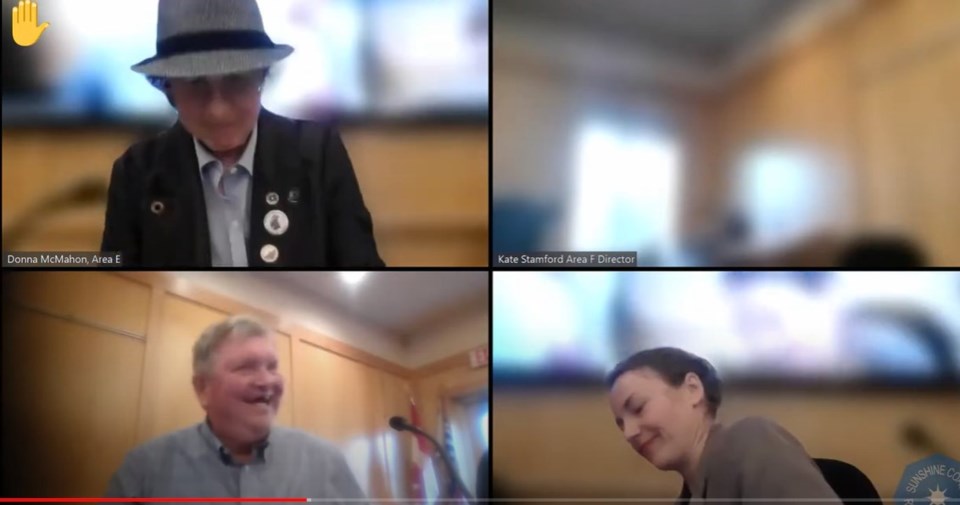Internet trolls and emergency prep drills made for a challenging Oct. 17 meeting for the Sunshine Coast Regional District.
Electoral Service committee chair Justine Gabias was ready for the “Great BC Shakeout” earthquake safety drill at 10:17 a.m., as she gave a prepared statement and joined directors as they took refuge under the boardroom table for the mock safety drill.
But unplanned disruption came in the minutes preceding the shakeout when Gabias called for public comments on official community plan and zoning amendment applications before the committee. A virtual meeting attendee indeed wanted to talk but not about the amendments at hand.
After Gabias dispensed with that irrelevant submission, the committee moved on to a development variance permit consideration, which again required that the chair call for submission from the public. That brought in two virtual submissions, one a musical interlude and the second an unintelligible offering from a distorted voice reminiscent of the character Zuul from the comedy/horror movie Ghostbusters.
The chair found neither on point with the business item the committee was discussing. To maintain decorum, Gabias asked staff if she could dispense with inviting online submissions in the meeting’s public comment opportunities. While that may have been expedient, the chair was advised that was not acceptable under the Community Charter (local government enabling legislation). At that point, she called for a meeting recess.
During that break, SCRD technical staff addressed whatever frailties in their systems that were allowing the disruptive submissions to get through.
The meeting distractions appeared to amuse Area D director Kelly Backs. In his initial comments after the interruptions, he stated, “That’s a hard act to follow."
Zoombombing: what it is and how it happens
Such hybrid meeting interruptions are often referred to as “Zoom bombs." According to Wikipedia, the practice is “unwanted, disruptive intrusion, generally by Internet trolls, into a video-conference call." That source cites that in a typical Zoom bombing incident “a teleconferencing session is hijacked by the insertion of material that is lewd, obscene, or offensive in nature, typically resulting in the shutdown of the session."
The term has become associated with and is named after the Zoom videoconferencing software program. The technology became popular with local governments, schools and other organizations when the COVID-19 pandemic complicated public gathering processes. It allows people to attend and participate in meetings, classes and other events from remote locations by connecting through use of the internet.
Correction: An earlier version of this story mis-stated that there was a rude video involved with the Zoom bombing. We regret the error.



